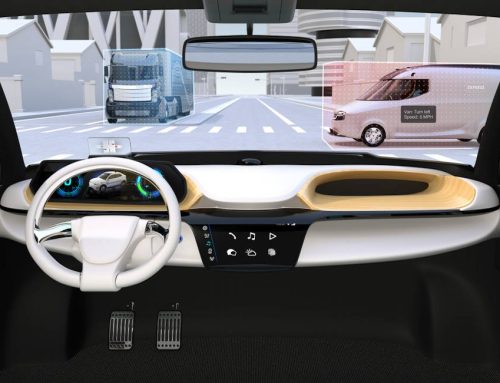Advanced Driver Assistance Systems (ADAS) have become an increasingly popular technology in the automotive industry over the past few years. They use sensors, cameras, and software to assist drivers in making better decisions on the road, improving safety, and reducing the risk of accidents.
For fleet managers, collision avoidance systems also allow them to reduce direct costs such as replacement and repair costs for vehicles, as well as indirect costs such as administrative paperwork and loss of business.
Mobileye collision avoidance systems feature industry-leading ADAS technology. These systems have been installed on more than 125 million vehicles worldwide. These AI-powered aftermarket collision avoidance systems help improve driver performance and assist them in avoiding or mitigating the impact of accidents.
Commercial fleets have a unique responsibility to ensure the safety of their drivers and the general public. This is why it is essential for commercial fleets to work with a professional Mobileye reseller rather than attempting to implement ADAS systems on their own. They benefit by working with someone who understands the details of the system, from the installation process to optimizing the system for the best results.
Trusted Solutions for Fleet Safety Needs
One of the main reasons why commercial fleets should use a professional ADAS reseller is because of the complexity of the technology involved. ADAS systems require a significant amount of expertise and knowledge to install and configure properly. This is especially true for larger fleets that have dozens or even hundreds of vehicles on the road at any given time.
A professional Mobileye collision avoidance reseller will have the necessary experience and resources to handle the installation and maintenance of the system, ensuring it is functioning at its optimal level at all times.
ADAS system resellers also understand the unique challenges that commercial vehicles face, such as heavy loads, long hours of operation, and frequent stops and starts. They also understand the importance of integrating ADAS systems with other fleet management tools, such as telematics and driver behavior monitoring.
By working with a professional ADAS reseller, commercial fleets ensure that their vehicles are equipped with the latest technology and that their drivers have access to the information they need to operate safely and efficiently.
Improving Fleet Safety
Using a professional ADAS reseller also helps to improve fleet safety, which is critical for commercial fleets. ADAS technology is designed to assist drivers in making better decisions on the road, such as avoiding collisions, staying in their lanes, and maintaining a safe distance from other vehicles.
By using ADAS technology, commercial fleets can reduce the risk of costly crashes and improve the safety of their drivers and the general public. A recent study by the Insurance Institute for Highway Safety (IIHS) found that forward collision warning systems such as those offered by Mobileye can reduce rear-end collisions by 44%.
In addition to improving safety, using a professional ADAS reseller can help commercial fleets save money in the long run. By reducing the risk of accidents and improving the efficiency of their vehicles, fleets can reduce repair and replacement costs and may eventually see lower insurance rates. They can also improve their overall productivity by reducing vehicle downtime.
Using a professional ADAS reseller can also help commercial fleets comply with regulations and industry standards. Regulatory bodies such as the National Highway Traffic Safety Administration (NHTSA) have implemented new safety standards that require equipping commercial vehicles with advanced safety technologies. By using a professional ADAS reseller, commercial fleets can ensure that they are compliant with these regulations and doing their part to improve safety on the road.
These are some of the benefits for commercial fleets who partner with a professional Mobileye collision systems reseller rather than attempting to implement a system on their own. That decision allows them to equip vehicles with the latest technology, improve safety, reduce costs, and increase productivity, all while remaining compliant with the latest standards and regulations.










